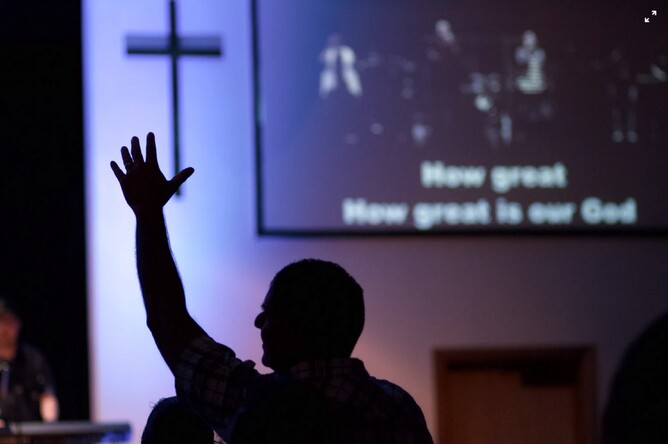I recall being on a flight into Wellington airport on a wet muggy day and when we landed a mist caused by condensation rose from the floor of the aircraft. A young man with an intellectual disability was seated a few rows in front of me and on seeing the mist started loudly yelling in a panicked voice, "FIRE, FIRE!"
What stuck in my mind about the incident was not his cries, but the look of alarm on the face of a member of the cabin crew as she rushed down the aisle. Moments before I had thought, "It's just condensation", but for a second, my own anxiety levels spiked when I saw someone I trusted become alarmed.
I was reminded of this incident this morning while thinking about the coronavirus outbreak and reflecting on Paul's words in Philippians chapter 1. Paul was imprisoned in Rome, which was bad enough in itself, but now he was receiving news that there were believers who were taking advantage of his absence and using it to advance their own status and following in the church.
In response to this twin threat, Paul wrote, "I want you to know, my dear brothers and sisters, that everything that has happened to me here has helped to spread the Good News. For everyone here, including the whole palace guard, knows that I am in chains because of Christ. And because of my imprisonment, most of the believers here have gained confidence and boldly speak God’s message without fear. It’s true that some are preaching out of jealousy and rivalry. But others preach about Christ with pure motives. They preach because they love me, for they know I have been appointed to defend the Good News. Those others do not have pure motives as they preach about Christ. They preach with selfish ambition, not sincerely, intending to make my chains more painful to me. But that doesn’t matter. Whether their motives are false or genuine, the message about Christ is being preached either way, so I rejoice. And I will continue to rejoice. (Philippians 1:12-18)
As we consider what to say to our young people and how to continuing doing effective ministry in an environment where camps have been cancelled and face to face programming in larger groups may become impossible, let's not forget the power of the example we set as we remain positive and full of hope at this time.
At the moment we are seeing people panic buying at our supermarkets, despite constant assurances that they do not need to fear shortages. Why do people continue to behave in this way? Because when faced with uncertainty over what to do, people in a crisis tend to take their behavioural cues from others. When they see others panicking they assume these people know something they don't and so they copy their behaviour.
Similarly, in their uncertainty, if they see others they look up to react with a quiet confidence and assurance they tend to copy that behaviour too. And if that same quiet confidence and assurance is based in the goodness and faithfulness of God, that example points them toward that same source of trust.
Finally then, as is so often the case, young people remember more about who we are than what we say. By all means strive to present good theology and follow wise practice. But let's also ensure we convey hope and optimism in our conversations.
God's plans are not thwarted by this. Developments have not caught Him by surprise. He's not sitting wondering what to do next.
Rather than lament the challenges, let's see this as an opportunity to approach ministry in new ways, so that in time we can affirm with Paul that, "everything that has happened to me here has helped to spread the Good News."



